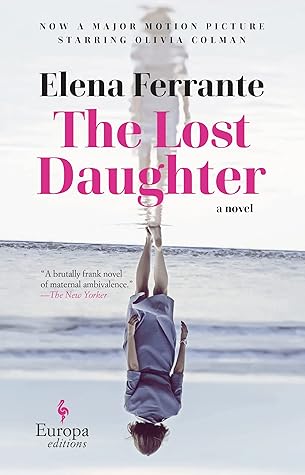More on this book
Community
Kindle Notes & Highlights
The hardest things to talk about are the ones we ourselves can’t understand.
They called me often, too, especially Bianca, who had a more imperiously demanding relationship with me, but only to know if blue shoes would go with an orange skirt, if I could find some papers left in a book and send them urgently, if I was still available to be blamed for their rages, their sorrows, in spite of the different continents and the spacious sky that separated us.
I wanted to be ready to cope with sudden requests for help, I was afraid they would accuse me of being what in fact I was, distracted or absent, absorbed in myself.
I realized long ago that I’ve held onto little of myself and everything of them. Even now, I was looking at Gino through the filter of Bianca’s experiences, of Marta’s, according to the tastes and passions I imagine as theirs.
Always words of contempt, skeptical or ironic. Bianca had cried to me once between her tears: you always think you’re best. And Marta: why did you have us if all you do is complain about us? Fragments of words, mere syllables. The moment arrives when your children say to you with unhappy rage, why did you give me life: I walked absorbed in thought.
One looks at a child and immediately the game of resemblances begins, as one hurries to enclose that child within the known perimeter of the parents. In fact it’s just live matter, yet another random bit of flesh descended from long chains of organisms. Engineering—nature is engineering, so is culture, science is right behind, only chaos is not an engineer—and, along with it, the furious need to reproduce.
How many things are done and said to children behind the closed doors of houses.
Reading, writing have always been my way of soothing myself.
But I loved them all, my daughters’ first boyfriends, I bestowed on them an exaggerated affection. I wanted to reward them, perhaps, because they had recognized the beauty, the good qualities of my daughters, and so had freed them from the anguish of being ugly, the certainty of having no power of seduction.
I remembered too well how, at Marta’s age, I had been certain that my mother, in creating me, had separated herself from me, as when one has an impulse of revulsion and, with a gesture, pushes away the plate. I suspected that she had begun to flee the moment she had me in her womb, even though as I grew up everyone said that I resembled her.
How foolish to think you can tell your children about yourself before they’re at least fifty. To ask to be seen by them as a person and not as a function. To say: I am your history, you begin from me, listen to me, it could be useful to you.
Physical tiredness is a magnifying glass. I was too tired to study, to think, to laugh, to cry, to love that man who was too intelligent, too stubbornly involved in his wager with life, too absent. Love requires energy, I had none left. When he began with caresses and kisses, I became anxious, I felt that I was a stimulus abused for his solitary pleasures.
I had always considered sex an ultimate sticky reality, the least mediated contact possible with another body. Instead, after that experience, I was convinced that sex is an extreme product of the imagination. The greater the pleasure, the more the other is only a dream, a nocturnal reaction of belly, breasts, mouth, anus—of every isolated inch of skin—to the caresses and thrusts of a vague entity definable according to the necessities of the moment. God
Males always have something pathetic about them, at every age. A fragile arrogance, a frightened audacity. I no longer know, today, if they ever aroused in me love or only an affectionate sympathy for their weaknesses.
Even that way of complaining about the present and the recent past, and idealizing the distant past, didn’t annoy me as it usually does. It seemed, rather, a way, like many, to convince oneself that there is always a slender branch of one’s life to hang on to, and, by being suspended there, get used to the inevitability of falling.
“Why did you leave your daughters?” I thought, searching for an answer that might help her. “I loved them too much and it seemed to me that love for them would keep me from becoming myself.” I realized that she was no longer laughing continuously, now she was paying attention to my every word. “You didn’t see them for three years.” I nodded yes. “And how did you feel without them?” “Good. It was as if my whole self had crumbled, and the pieces were falling freely in all directions with a sense of contentment.”


